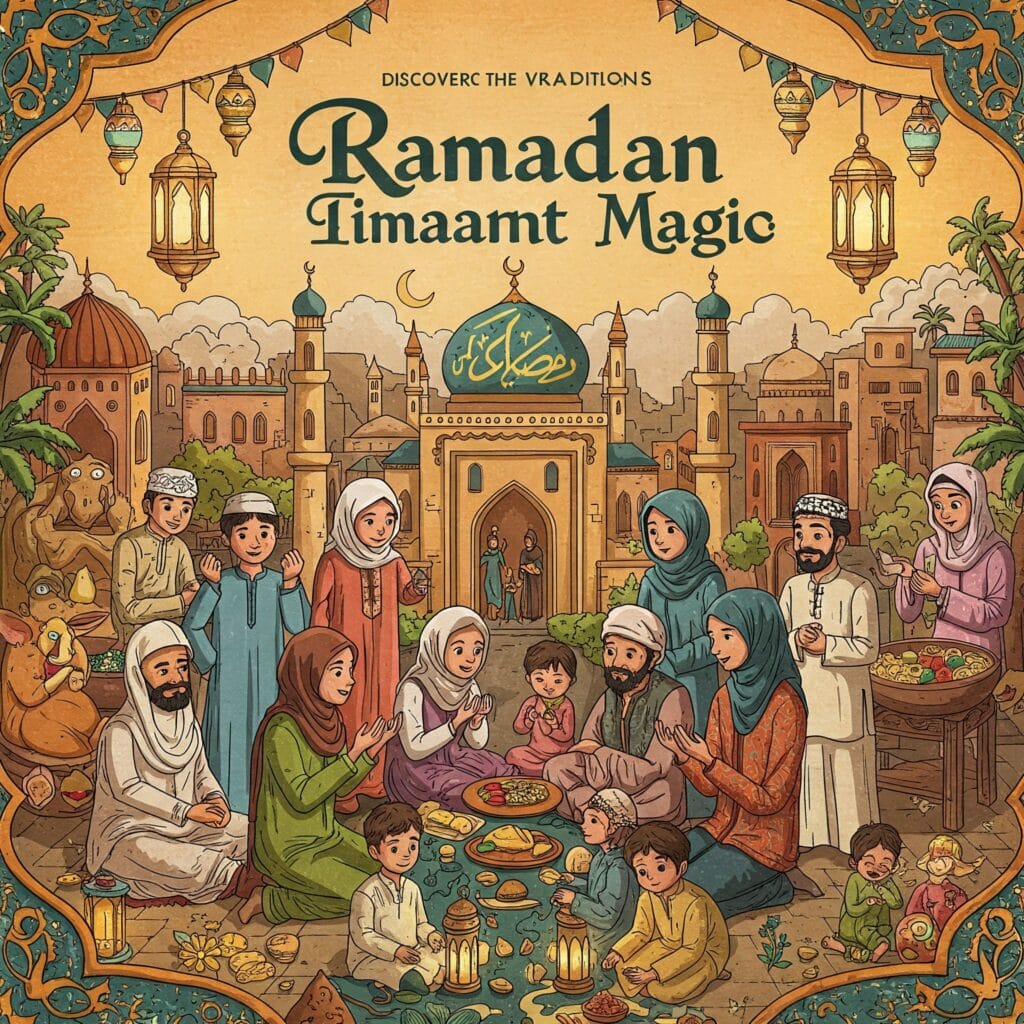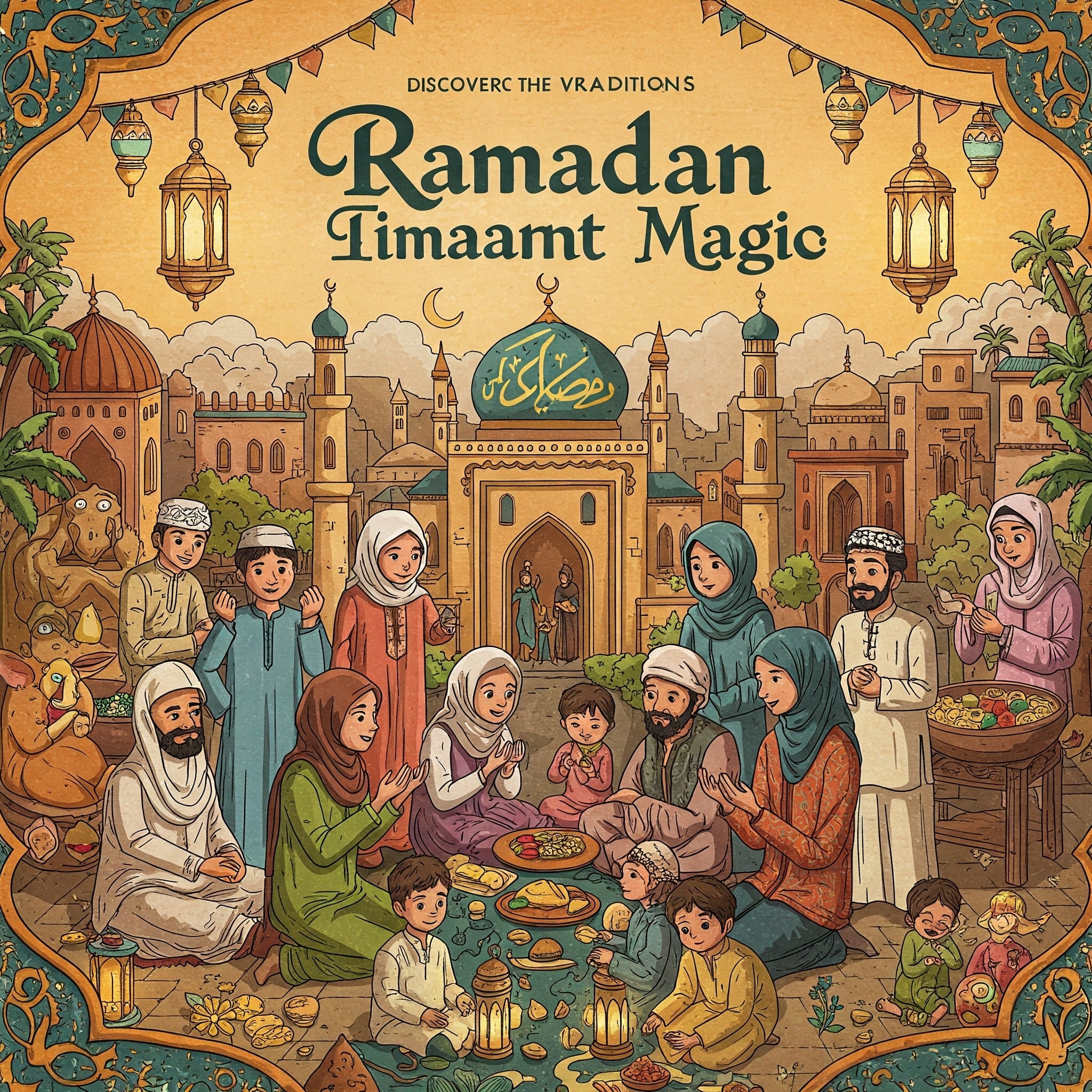Ramadan, the ninth month of the Islamic lunar calendar, is a sacred time for over 1.9 billion Muslims, a period of fasting, prayer, and spiritual renewal rooted in the Quran and the Sunnah of the Prophet Muhammad (peace be upon him). Beyond its communal and ritual significance, Ramadan is a deeply personal journey, offering opportunities for self-discovery, spiritual growth, and emotional resilience. In 2025, amidst global challenges like digital overload and social fragmentation, my Ramadan experience became a transformative odyssey, strengthening my iman (faith), sabr (patience), and taqwa (self-control). This in-depth reflection chronicles my personal journey through Ramadan, weaving Quranic insights, prophetic teachings, and practical lessons learned. By sharing moments of struggle, triumph, and growth, I aim to illuminate how Ramadan fosters profound personal transformation, encouraging others to embark on their own journeys of faith and self-betterment.

Theological Foundations of Ramadan
Quranic Call to Fasting
The Quran frames Ramadan as a path to righteousness:
“O you who have believed, decreed upon you is fasting as it was decreed upon those before you that you may become righteous.” [Al-Baqarah 2:183]
This verse underscores fasting’s purpose: cultivating taqwa, a state of God-consciousness that shapes my daily actions and thoughts. Another verse ties Ramadan to divine guidance:
“The month of Ramadan [is that] in which was revealed the Quran, a guidance for the people and clear proofs of guidance and criterion…” [Al-Baqarah 2:185]
This inspired me to engage deeply with the Quran, seeking wisdom to navigate personal challenges.
Spiritual Rewards
The Quran promises abundant rewards for sincere worship:
“…And whatever good you put forward for yourselves—you will find it with Allah. It is better and greater in reward…” [Al-Baqarah 2:110]
This motivated me to approach Ramadan with intention, knowing every act of devotion could transform my spiritual state.
My Ramadan Journey: A Personal Narrative
Preparation: Setting Intentions
Before Ramadan 2025 began, I reflected on my goals, inspired by the Prophet’s emphasis on intention: “Actions are judged by intentions…” [Sahih al-Bukhari 1]. I aimed to:
- Deepen my iman through Quran recitation and dua.
- Cultivate sabr in daily interactions and fasting challenges.
- Enhance taqwa by controlling impulses and refining habits.
I downloaded apps like Muslim Pro to track prayer times and set reminders for morning adhkar, aligning with Al-Baqarah 2:185’s call to engage with the Quran.
Week 1: Embracing the Fast
The first week was both exhilarating and daunting. Waking for suhoor at 4:30 AM in my city’s springtime dawn felt like a sacred ritual. I followed the Prophet’s practice of eating dates and drinking water (Sahih al-Bukhari 1957), finding simplicity grounding. Fasting from dawn to sunset, per Al-Baqarah 2:183, tested my physical endurance, especially during long workdays. Hunger pangs reminded me of the Quran’s promise: “Indeed, with hardship [will be] ease” [Ash-Sharh 94:6].
A challenge arose when a colleague’s insensitive comment about fasting sparked frustration. Recalling the Prophet’s advice—“If someone insults you while fasting, say, ‘I am fasting’” [Sahih al-Bukhari 1894]—I responded calmly, cultivating sabr. By week’s end, nightly taraweeh prayers at my local mosque, reciting portions of the Quran, deepened my iman, as per Sahih al-Bukhari 1905.
Week 2: Deepening Spiritual Connection
As my body adjusted to fasting, I focused on spiritual growth. I committed to reading a juz’ (1/30th) of the Quran daily, inspired by Al-Baqarah 2:185. Reflecting on verses like Ar-Ra’d 13:28—“Unquestionably, by the remembrance of Allah hearts find rest”—I incorporated dhikr, reciting “SubhanAllah” and “Astaghfirullah” during commutes. This practice brought sakina (tranquility), easing work-related stress.
A pivotal moment came during a taraweeh sermon, where the imam discussed the dua: “Allahumma innaka ‘afuwwun tuhibbul ‘afwa fa’fu ‘anni” (Sunan Ibn Majah 3850). Praying for forgiveness, I confronted past regrets, finding emotional healing. However, distractions like social media tempted me to scroll instead of pray. I set phone-free hours, reinforcing taqwa, per Sahih Muslim 1151’s metaphor of fasting as a shield.
Week 3: Building Community and Charity
Ramadan’s communal spirit shone in week three. I hosted a small iftar, sharing biryani and dates, inspired by the Prophet’s words: “Whoever provides iftar for a fasting person has a reward like his…” [Jami’ at-Tirmidhi 807]. The laughter and dua shared with friends strengthened my sense of belonging, reflecting Al-Ma’idah 5:2’s call for cooperation in righteousness.
I also donated to a local food drive via Islamic Relief, aligning with Al-Baqarah 2:110’s emphasis on charity. Volunteering at a mosque’s iftar for the needy, I met a family struggling financially. Their gratitude humbled me, reinforcing sabr in my own challenges. A late-night tahajjud prayer, per Sahih al-Bukhari 1140, became a moment of gratitude, deepening my iman.
Week 4: Reflection and Renewal
The final week brought introspection. Long fasting hours tested my patience, especially during a heatwave. Reciting Al-Baqarah 2:153—“Indeed, Allah is with the patient”—I pushed through, finding strength in routine prayers. I struggled with overeating at iftar, contradicting the Prophet’s moderation (Sahih al-Bukhari 1975). Mindful eating, guided by apps like Ramadan Legacy, restored taqwa.
As Laylat al-Qadr approached, I intensified dua, seeking the night’s blessings, per Al-Qadr 97:3. Reflecting on my journey, I journaled lessons learned: patience in adversity, control over distractions, and faith through worship. Celebrating Eid al-Fitr with family, I felt renewed, carrying Ramadan’s habits forward, per Al-Baqarah 2:110.
Lessons Learned and Personal Growth
Strengthened Faith (Iman)
Daily Quran recitation and taraweeh, per Al-Baqarah 2:185, deepened my connection to Allah. Dua became a lifeline, transforming anxiety into trust, as in At-Talaq 65:3.
Cultivated Patience (Sabr)
Fasting’s physical and emotional challenges, per Al-Baqarah 2:153, taught me to respond calmly to provocations and endure discomfort, skills I now apply in work and relationships.
Enhanced Self-Control (Taqwa)
Controlling impulses, from anger to overeating, per Sahih Muslim 1151, refined my discipline. Limiting social media improved focus, a habit I maintain post-Ramadan.
Emotional Resilience
Charity and community iftars, per Al-Ma’idah 5:2, grounded me in gratitude, reducing stress and fostering empathy, aligning with Ar-Ra’d 13:28’s promise of peace.
Contemporary Contexts in 2025
Global Practices
My journey mirrored global Ramadan trends. Apps like Muslim Pro, used worldwide, supported my fasting and dua, per Al-Baqarah 2:185. Community iftars, like those in Malaysia or the US, reflected my own, fostering unity, per Al-Ma’idah 5:2. Charity drives, via platforms like Zakatify, amplified my giving, per Al-Baqarah 2:110.
Challenges
- Digital Distractions: Social media, a 2025 challenge, tempted me from worship. Digital detox, inspired by global campaigns, restored focus, per Sahih Muslim 1151.
- Work Demands: Balancing fasting with work mirrored struggles in urban Muslim communities. Flexible schedules and apps like Athan helped, per Al-Baqarah 2:185’s ease.
- Cultural Excess: Overindulgent iftars, seen globally, challenged moderation. I followed scholarly advice via IslamQA, embracing simplicity, per Sahih al-Bukhari 1975.
Practical Benefits of My Ramadan Journey
- Spiritual Growth: Quran and dua deepened iman, sustaining faith year-round, per Al-Baqarah 2:110.
- Emotional Well-Being: Sabr and dhikr reduced anxiety, per Ar-Ra’d 13:28, enhancing mental peace.
- Physical Discipline: Fasting regulated eating, per Sahih al-Bukhari 1975, improving health.
- Community Connection: Iftars and charity, per Al-Ma’idah 5:2, strengthened relationships and empathy.
Common Misconceptions and Clarifications
Misconception 1: Ramadan Is Just Hunger
Myth: Fasting is only physical. Clarification: My journey showed Al-Baqarah 2:183’s focus on taqwa, with fasting enhancing spiritual and moral growth, per Sahih Muslim 1151.
Misconception 2: Ramadan Is Too Hard
Myth: Fasting is overwhelming. Clarification: Al-Baqarah 2:185’s “Allah intends ease” and exemptions (Sahih al-Bukhari 1946) made my journey manageable, building resilience.
Misconception 3: Benefits Are Temporary
Myth: Ramadan’s growth fades post-month. Clarification: My sustained habits, like dua and moderation, per Al-Baqarah 2:110, prove Ramadan’s lasting impact.
Misconception 4: Fasting Hinders Productivity
Myth: Fasting reduces efficiency. Clarification: My focus improved, as fasting enhances mental clarity, per Sahih al-Bukhari 1905 and modern studies.
Practical Steps for Your Ramadan Journey
To embark on a transformative Ramadan:
- Set Clear Intentions: Define goals for iman, sabr, and taqwa, per Sahih al-Bukhari 1, using apps like Ramadan Legacy.
- Engage with Quran: Read a juz’ daily, per Al-Baqarah 2:185, via Quran.com or tafsir lectures by Shaykh Omar Suleiman.
- Practice Mindful Fasting: Avoid negativity, per Sahih al-Bukhari 1894, and reflect on Al-Baqarah 2:153 during challenges.
- Join Taraweeh: Attend mosque or online prayers, per Sahih al-Bukhari 1905, to boost iman.
- Host Simple Iftars: Share modest meals, per Jami’ at-Tirmidhi 807, using healthy recipes from Muslim Pro.
- Give Charity: Donate via Islamic Relief, per Al-Baqarah 2:110, to cultivate empathy.
- Limit Distractions: Set phone-free hours, per Sahih Muslim 1151, to focus on dhikr and dua.
- Journal Reflections: Track growth, inspired by Al-Baqarah 2:110, to sustain habits post-Ramadan.
Conclusion
My Ramadan journey in 2025 was a profound voyage of faith, patience, and self-control, rooted in the Quranic call to fast (Al-Baqarah 2:183) and the Prophet’s teachings. Through Quran recitation, taraweeh, charity, and mindful fasting, I deepened my iman, cultivated sabr, and enhanced taqwa, overcoming challenges like distractions and fatigue. These lessons, supported by digital tools and community spirit in 2025, continue to shape my life, proving Ramadan’s enduring transformative power. As the Quran promises:
“Indeed, those who have believed and done righteous deeds—the Most Merciful will appoint for them affection.” [Maryam 19:96]
By embracing Ramadan’s disciplines, anyone can embark on a journey of growth, finding peace and purpose in faith.
Must read:
- Discover the Vibrant Magic: Ramadan ’s Traditions Unite the World in Joyful Celebration!
- Unlock the Transformative Secret: Ramadan’s Faith Ignites Unshakable Patience and Self-Control!
- Unlock the Soothing Power: Quran Peace Restores Your Heart with Radiant Inner Healing!
Frequently Asked Questions (FAQs)
u003cstrongu003eHow does Ramadan foster personal growth?u003c/strongu003e
Fasting, Quran, and dua, per Al-Baqarah 2:183, deepen iman, sabr, and taqwa, as my journey showed.
u003cstrongu003eWhat if fasting feels difficult?u003c/strongu003e
Al-Baqarah 2:185 allows ease, and gradual practice, per Sahih al-Bukhari 1946, builds strength, as I experienced.
u003cstrongu003eHow can I stay focused during Ramadan?u003c/strongu003e
Limit distractions and use apps like Muslim Pro, per Sahih Muslim 1151, as I did for dhikr and prayer.
u003cstrongu003eDoes Ramadan’s impact last?u003c/strongu003e
Yes, habits like dua and moderation, per Al-Baqarah 2:110, sustain growth, as I continue post-Ramadan.
u003cstrongu003eHow do I balance work and fasting?u003c/strongu003e
Flexible schedules and apps like Athan, per Al-Baqarah 2:185, helped me manage, enhancing productivity.
u003cstrongu003eCan non-Muslims join Ramadan?u003c/strongu003e
Yes, sharing iftars or learning, per Al-Hujurat 49:13, fosters understanding, as seen in my community events.


Post Comment